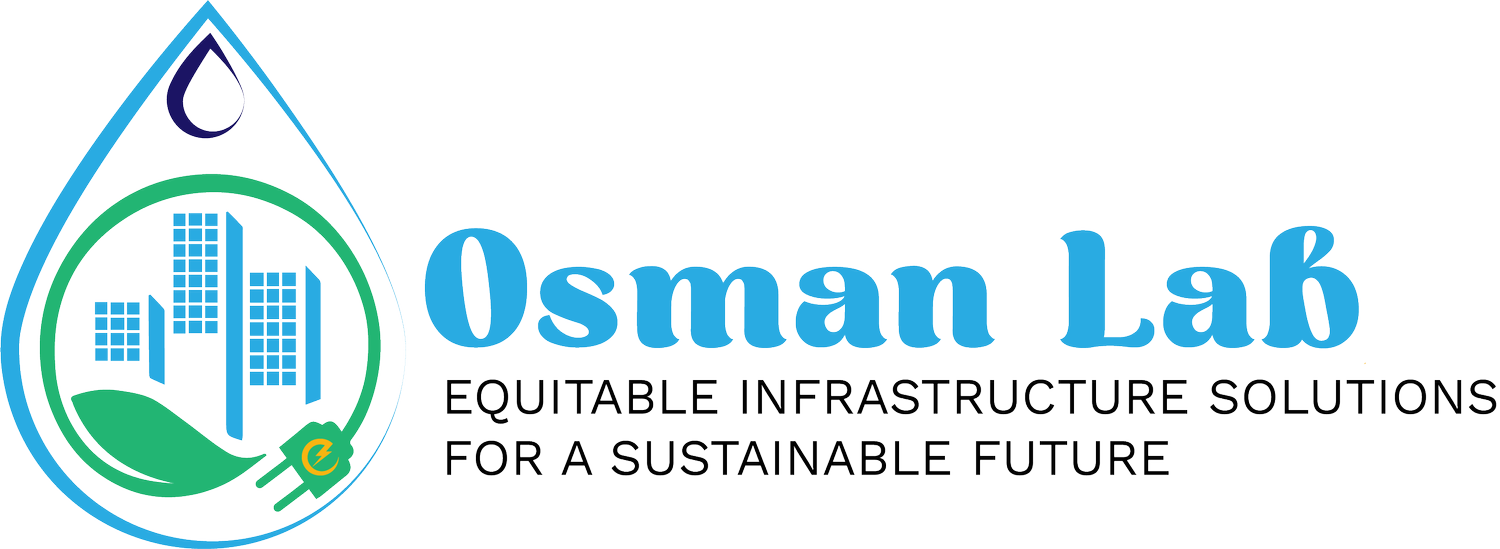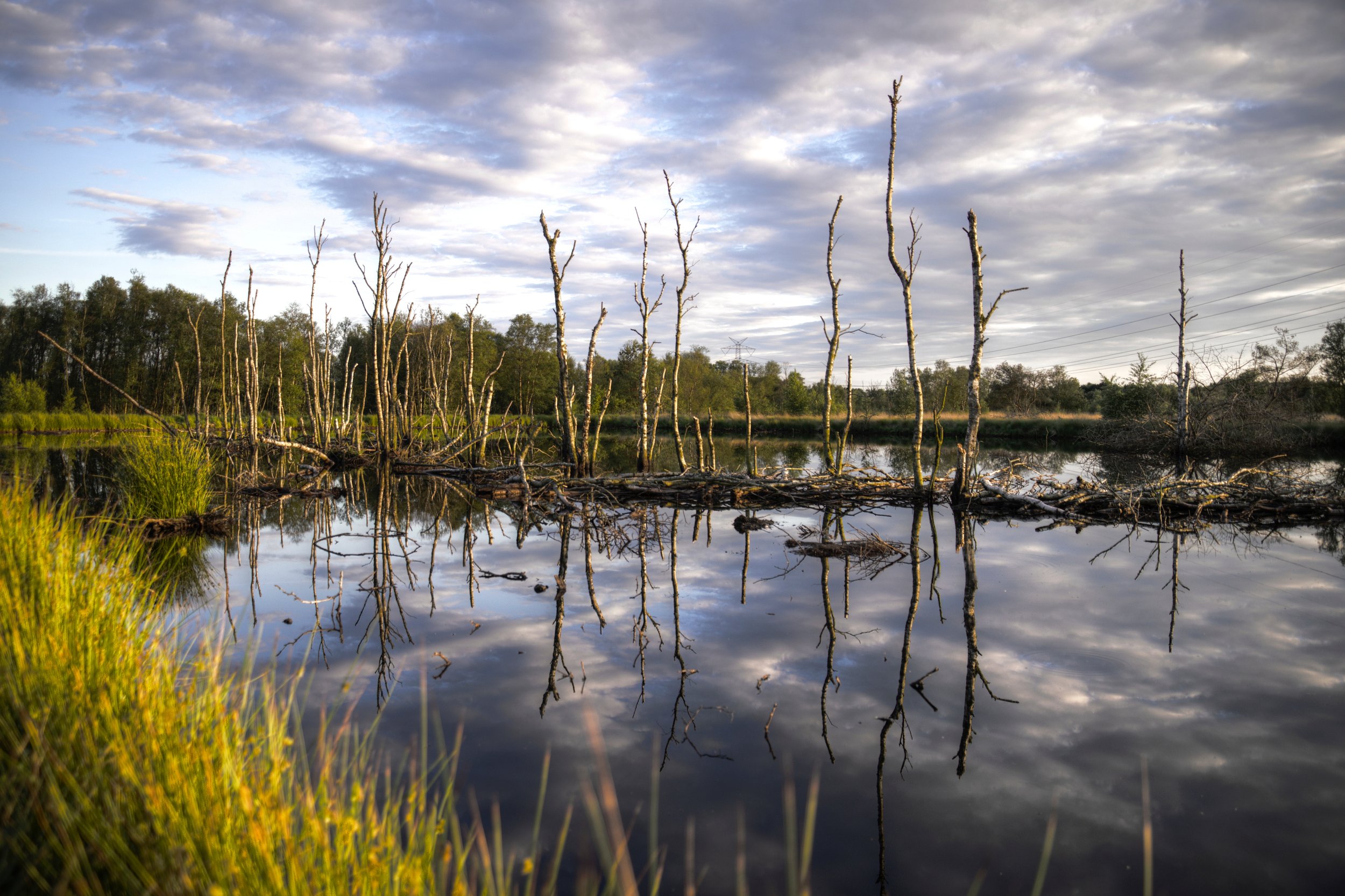Research
Our Approach
As we think about the effects of climate change and systemic inequities, it is often the vulnerable populations that are impacted the most. Our lab’s philosophy centers on using data and innovative technologies to create a future where all communities have access to safe and reliable infrastructure services, without any barriers. We develop interdisciplinary infrastructure systems approaches that consider social factors as core drivers of technical solutions. We leverage tools and frames from different areas of STEM and employ them to improve the performance, resilience, and equitability of pre-existing and upcoming infrastructures, with particular focus on water infrastructure systems through an equity and environmental justice lens.
Ongoing Projects
Advancing Water Systems Failure Identification: Using Humans as Sensors to Reduce Inequities at the Tap
Partner Organizations: UCLA Luskin Center, Nuestra Casa, We The People of Detroit
Funder: Stanford Impact Labs
-
This project will target recording residents’ interactions with and observations of household drinking water quality, use them to identify spatial and temporal trends at the tap, and assess residents’ trust in their water, perception of risk, and associated health and welfare impacts.
Strengthening Community Self-Advocacy Through Ecosystem Services Evaluation
Partner Organization: Bayou City Waterkeeper
Funder: Environmental Ventures Project (Woods Institute)
-
In the wake of Hurricane Harvey, it was revealed that flood damage was greater in communities with disproportionately high populations of marginalized people (i.e. low-income, people of color). As Houston re-evaluates its flood control and mitigation plans, the project team seeks to provide insight into the utility and public demand for nature-based solutions. In partnership with a local community-based organization, this project will generate ecosystem service valuations focused on the restoration and conservation of upstream wetlands that are hydrologically connected to downstream marginalized communities.
Advancing Sanitation Justice: Linking Climate-Exacerbated Nitrogen, Cyanotoxins, and Parasites with Reimagined Sanitation Infrastructure and Services in African-American Communities
Partner Organizations: Center for Rural Enterprise and Environmental Justice (CREEJ), Baylor College of Medicine
Funder: Environmental Protection Agency
-
Although access to sanitation infrastructure in the U.S. is widespread, it is still not equitable, particularly for underserved African American communities. To meet the urgent needs of these communities, the project team plans to pursue three objectives: (i) comparing sanitation-related exposure to environmental contaminants for an urban and rural community, (ii) prioritizing effects of climate change stressors on sanitation infrastructure and contaminant health impacts, and (iii) designing and evaluating improved sanitation infrastructure to reduce exposure while maximizing economic viability and community engagement.
Partner Organizations: The Water Research Foundation, University of Colorado Boulder, Southern Nevada Water Authority, Colorado School of Mines, The WateReuse Association, University of Washington
Funder: Environmental Protection Agency
Unlocking the Nationwide Potential of Water Reuse
-
The recent adoption of the National Water Reuse Action Plan (WRAP) by the U.S. Environmental Protection Agency (EPA) has resulted in an effort to advance the adoption of water reuse at a national scale. This effort envisions numerous forms of reuse as supplementing existing water supply portfolios (e.g., municipal, agricultural, industrial, and on-site reuse) and the integration of stormwater into local water resource supplies. Utilizing state-of-the-art natural language processing methods, Osman Lab is performing a Media Analysis on news articles over the past 47 years across the US to gauge how water reuse has been framed in the media within differing spatialand temporal contexts. Additionally, we are developing quantitative models to assess whether there are spillover effects between spatial boundaries where the sentiment of water reuse articles may be more or less favorable. This project seeks to show decision-makers and community leaders where opportunities exist for various types of water reuse and how reuse can address environmental and social needs in their communities.
Assessing the Energy, Water Consumption, and Conservation Nexus in an Urban US Household
-
The growing water shortage problems fueled by climate change, equity barriers, and increasing energy rates, warrant the need for understanding water and energy conservation problems as a complex challenge. Understanding this nexus at a household level, where common people have greater control over the water and energy consumed, is important for achieving equitable access to water. By developing a sensor-based device and performing a controlled study, this study would help us quantify the water and energy losses that occur due to the lack of a proper heating system in a typical US household. The outcomes of this work would enable us to bring necessary household-scale infrastructure changes that would improve equity as well as water and energy conservation.
Funder: UPS Foundation
A Study of Patient and Environmental Factors that Drive Kidney Stone Disease in the Wet Zone of Sri Lanka
Partner Organizations: Stanford Health Care
Funder: Environmental Venture Projects
-
Sri Lanka's Central Highlands experience a high burden of kidney stone disease, but specific data on contributing factors are lacking. This interdisciplinary study will examine regional variations in stone disease prevalence between the wet and dry zones of Sri Lanka. Researchers will generate topographic water source maps and gather community perceptions of the regional water supply, aiming to identify risk factors for kidney stone disease and improve public health outcomes.
Evaluating the Low-Income Household Water Assistance Program in California: Barriers and Opportunities in Advancing Water Affordability and Equity
Funder: California Water Association
-
Access to affordable water is a growing concern in the United States. This escalating crisis has highlighted the need for comprehensive strategies to ensure water affordability and equity, particularly for vulnerable populations. This study aims to evaluate the effectiveness of the Low Income Household Water Assistance Program (LIHWAP) in improving access to essential water services and furthering water equity using the state of California as a case study. Furthermore, the study will evaluate the potential of LIHWAP as a viable model for long-term water affordability programs in the US.
Rethinking Water Affordability: Evaluating Drinking Water Costs with Bottled and Filtered Water Considerations
Partner Organizations: Nuestra Casa
-
We examine the affordability of drinking water bills in East Palo Alto and how accounting for bottled and filtered water costs influences our assessment of “affordability”
Addressing Water Affordability for Hard-to-Reach Populations in Santa Cruz: Barriers and Opportunities in Advancing Water Affordability and Equity
Partner Organization: City of Santa Cruz
-
This project will assess water affordability challenges faced by hard-to-reach and underserved populations in Santa Cruz. Water affordability is a barrier to water access for many low-income households, prompting the City of Santa Cruz Water Department to initiate a customer assistance program to reduce water bills for those in need. However, many renters in multi-family housing do not pay water bills directly, as their water costs are included in their rent. The project will inform the design of a customer assistance program for renters and low-income households by engaging up to 200 community members. The funding will help support research assistants to develop and implement surveys, conduct literature and policy review. Additionally, it will support outreach and incentives for participants to share billing information.
Socio-psychological perspectives in AI model selection for performance and sustainability
Funder: Bits & Watts Initative (Precourt Institute for Energy)
-
By combining insights from social psychology and AI model development, this project aims to provide AI developers with contextual information about carbon emissions and energy consumption in relatable terms, making environmental impacts more salient and encouraging more sustainable choices. The products of this work will include a validated framework for sustainable AI practices; a dataset on developer perspectives on selecting AI models for training, fine-tuning, and serving AI models; guidelines for developers; and contributions to policy discussions on aligning AI with climate goals.
Human Mobility and Critical Infrastructure
Funder: Environmental Venture Projects
-
This project aims to establish a new partnership for Human Mobility and Critical Infrastructure (HuMCI) to address the environmental factors driving human mobility. Our goal is for researchers and practitioners to collaborate in order to enhance how critical infrastructure—including transportation, electricity, water, and wastewater infrastructure—supports our adaptation to a changing climate and promotes healthy, fulfilling lives, whether through migration or staying in place. In this initial stage of our partnership, we propose objectives that will enable us to work together more effectively in characterizing human mobility and critical infrastructure through activities organized under two pillars. Funding to explore this issue and convene will strengthen our partnership, allowing us to more adeptly seek additional research support to conduct studies with communities affected by climate-induced migration and to trial new interventions.
Transforming Access to Safe Drinking Water Across the United States: Innovative Data and Scalable Solutions
Funder: Stanford Doerr School of Sustainability: Water Accelerator
Partner Organizations: UCLA Luskin Center for Innovation
-
We aim to address the persistent issue of unsafe and unreliable drinking water across the United States by focusing on the widespread fragmentation of community water systems (CWS). With over 50,000 CWS, many small systems fail to meet Safe Drinking Water Act (SDWA) standards and lack the capacity or resources to improve. While policies promote system consolidation or treatment upgrades, the absence of a comprehensive national assessment makes it difficult to identify which systems are most in need and most likely to benefit. Leveraging national EPA datasets, we will build a scalable, data-driven model that estimates feasible compliance solutions, either treatment upgrades or system consolidation, and associated capital costs for systems in violation of drinking water standards.
Leaving No One Behind: Rethinking Energy Poverty in Sub-Saharan Africa
Partner Organizations: Stanford King Center on Global Development
-
Global measures of energy access have gone beyond binary indicators, but they still
miss much of what people experience in their daily lives. In Sub-Saharan Africa,
communities continue to face hidden layers of deprivation that conventional
indicators rarely capture. This project flips the lens. Drawing on conversations with
communities in Nigeria and South Africa, we listen directly to how people describe and
live through energy poverty. Using an energy justice perspective, we highlight the
realities that matter most to communities–like reliability, dignity, and fairness–that
are often left out of official assessments. By surfacing these underrepresented voices
and indicators, our work helps shape more meaningful ways to measure energy
poverty and guide solutions that truly leave no one behind.
Beyond Connections: Assessing Household Energy Precarity in Nigeria’s
Electrification Program
Partner Organizations: Stanford King Center on Global Development
-
Rural Nigeria is experiencing new electrification through the Nigeria Electrification
Project (NEP) and World Bank–supported mini-grids. Yet having a connection does not
always guarantee secure and usable power–a challenge seen even in developed
regions. Energy precarity captures the layered vulnerabilities–political, economic, and
technical–that leave households struggling to secure affordable, reliable, and
dignified energy services. Through household surveys in rural northern communities,
this project examines the conditions under which energy precarity persists even after
infrastructure arrives. The findings provide evidence to design electrification
programs that move beyond access, ensuring energy systems that are fairer, more
reliable, and more sustainable across Sub-Saharan Africa.
Making Partnerships Work: Insights from Nigeria’s Electrification Project
Funder: Stanford Center for African Studies
Building energy infrastructure is as much about people and institutions as it is about
technology. In Nigeria’s Electrification Project (NEP), supported by the World Bank,
collaboration between national agencies and global donors directly shapes how mini-
grids are planned and delivered. This project surveys NEP officials to map how
engagement practices—voice, transparency, and accountability—are experienced in
practice. By linking governance with infrastructure delivery, the study reveals how
stronger partnerships can make electrification programs more inclusive, resilient, and
Partners
Osman lab works closely with diverse research labs, community partners and grass-root organizations to identify community needs, work on pressing socio-environmental issues, and incorporate end-user inputs and perspectives into infrastructure and policy planning.






























